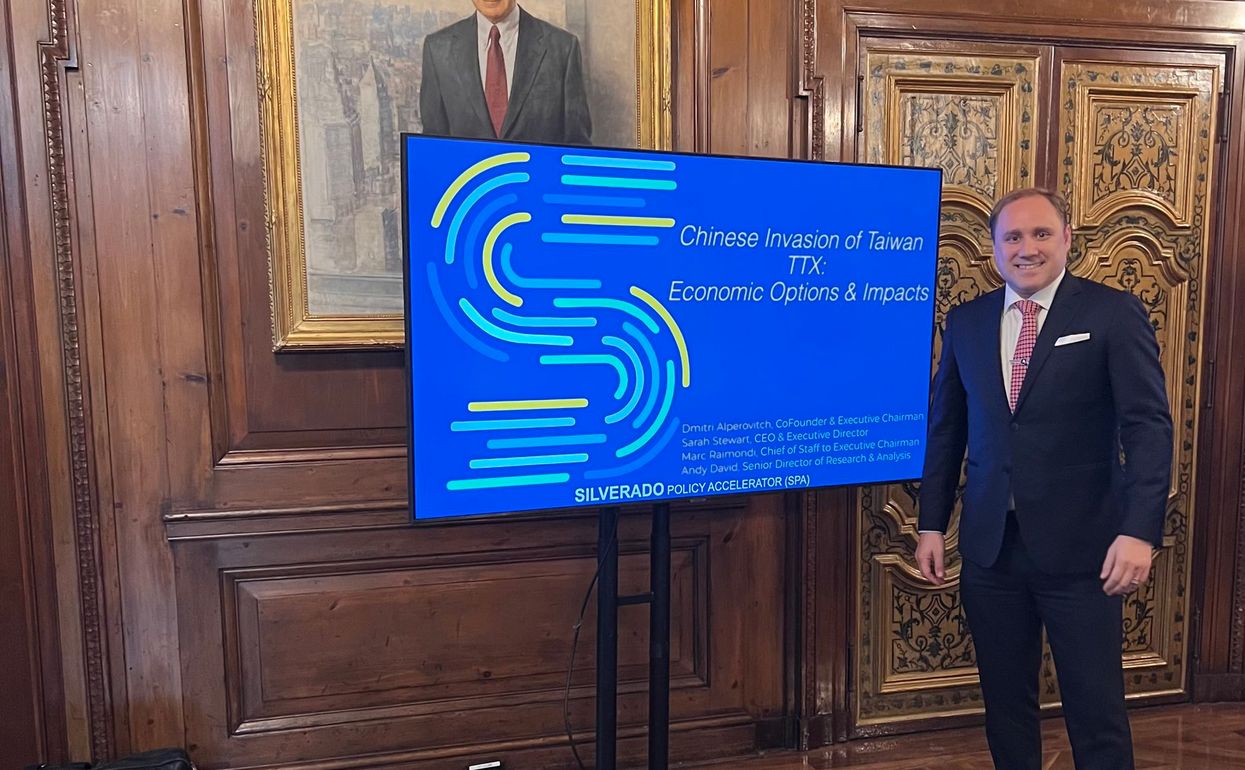Silverado Conducts Tabletop Exercise on Potential China-Taiwan Conflict
Silverado Policy Accelerator Conducts Tabletop Exercise on Economic Options and Impacts of a Potential China-Taiwan Conflict for U.S. House Select Committee on the Chinese Communist Party and Private Sector Leaders
Event Focused on Cross Sector Leverage Points for De-escalating a Potential China-Taiwan Armed Conflict
NEW YORK CITY – Silverado Policy Accelerator (SPA) conducted a tabletop exercise (TTX) yesterday exploring economic deterrent options and impacts pertaining to a hypothetical China-Taiwan armed conflict for the bipartisan U.S. House Select Committee on the Chinese Communist Party, chaired by Congressman Michael Gallagher and Ranking Member Raja Krishnamoorthi.
The TTX, conducted under Chatham House Rule, started with a fictional 2028 scenario where People's Republic of China’s Armed Forces were amassing troops, supplies and equipment across the Taiwan Strait and conducting unprecedented provocations and harassment of Taiwan while threatening to close off shipping access in and near their claimed territorial waters. In the scenario, U.S. military and intelligence leaders believe China is on the precipice of taking steps towards realizing its longstanding ambition to unify Taiwan with mainland China using all means necessary.
The TTX discussion examined the respective economic and trade leverage that the U.S. and its allies would presumably have in 2028 and how that leverage could be used to deter an invasion, the likely retaliation by China, and the impacts on the U.S. and global economies. The exercise then returned to the 2023 timeframe to examine moves that can be made today to reduce the economic leverage China has over the United States and its allies while increasing their own leverage over China.
Key Exercise Observation by SPA:
- Due to extensive economic ties and dependencies on each other, the United States cannot wait until an armed conflict is in motion to use its extensive financial and economic leverage to deter China from launching an invasion against Taiwan. Important work must be done now to enhance leverage and reduce vital dependencies to strengthen both military, financial, technological and economic deterrence levers
- The United States government should be conducting additional coordinated exercises across defense and civilian agencies to identify and prepare deterrence options and develop strategies for the United States and allies to fortify their competitiveness and resilience in key sectors
- The United States and its allies currently have strong leverage in the semiconductor industry, although it will erode if further steps are not taken to ensure that China is denied the most advanced chipmaking technology and also does not obtain dominance in the foundational (legacy and mature) chips market
- The United States, allies and key partners are most dependent on China for critical minerals where Chinese companies dominate the global refining market, capturing 90% of the refining and 70% of mining production for rare earths, as one example
In addition to Members of the Committee, senior executives from the financial and other private sector industries also took part.
SPA is a non-profit, geopolitical think tank dedicated to forging a path towards American and allied prosperity and global competitiveness through acceleration of bipartisan economic, strategic, and technological policy solutions. SPA has extensive experience conducting tabletop exercises, events, seminars and conferences across a broad range of national security, technology, economic, environmental and energy security issues. The audience for SPA’s events includes a wide range of U.S. and foreign government officials, corporate executives, academic leaders and other recognized subject matter experts. SPA’s CoFounder and Executive Chairman, Dmitri Alperovitch, has conducted tabletop wargaming exercises for over a decade in public and private settings and with senior government officials from multiple nations at major geopolitical events both in the United States and abroad.
–30–
Pillar
Great Power Competition
Trade and Industrial Security
